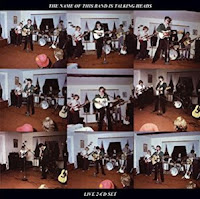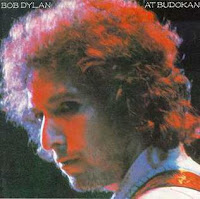posted by all-musicrecords
Disintegration is the eighth studio album by English rock band the Cure, released on 2 May 1989 by Fiction Records.
The band recorded the album at Hookend Recording Studios in Checkendon, Oxfordshire, with co-producer David M. Allen from late 1988 to early 1989.
Following the completion of the mixing, founding member Lol Tolhurst was fired from the band.
The record marks a return to the introspective gothic rock style the band had established in the early 1980s.
As he neared the age of 30, vocalist and guitarist Robert Smith had felt an increased pressure to follow up on the band's pop successes with a more enduring work.
This, coupled with a distaste for the group's newfound popularity, caused Smith to lapse back into the use of hallucinogenic drugs, the effects of which had a strong influence on the production of the album.
Disintegration was Smith's thematic return to a dark and gloomy aesthetic that the Cure had explored in the early 1980s.
Smith deliberately sought to record an album that was depressing, as it was a reflection of the despondency he felt at the time.
The sound of the album was a shock to the band's American label Elektra Records; the label requested Smith shift the release date back several months.
Smith recalled "they thought I was being 'wilfully obscure', which was an actual quote from the letter [Smith received from Elektra]. Ever since then I realised that record companies don't have a fucking clue what The Cure does and what The Cure means."
Despite rumours that Smith was one of the only contributors to the record, he confirmed that more than half of the dozen tracks on Disintegration had substantial musical input from the rest of the band.
Disintegration is characterised by a significant usage of synthesizers and keyboards, slow, "droning" guitar progressions and Smith's introspective vocals.
"Plainsong", the album's opener, "set the mood for Disintegration perfectly", according to biographer Jeff Apter, by "unravelling ever so slowly in a shower of synths and guitars, before Smith steps up to the mic, uttering snatches of lyrics ('I'm so cold') as if he were reading from something as sacred as the Dead Sea Scroll."
Smith felt the song was a perfect opener for the record, describing it as "very lush, very orchestral".
The album's third track, "Closedown", contains layers of keyboard texture complemented with a slow, gloomy guitar line. The track was written by Smith as a means to list his physical and artistic shortcomings.
Despite the dark mood present throughout Disintegration, "Lovesong" was an upbeat track that became a hit in the United States.
Ned Raggett of AllMusic noted the difference from other songs: "the Simon Gallup/Boris Williams rhythm section create a tight, serviceable dance groove, while Smith and Porl Thompson add further guitar fills and filigrees as well, adding just enough extra bite to the song. Smith himself delivers the lyric softly, with gentle passion."
Much of the album made use of a considerable amount of guitar effects. "Prayers for Rain", a depressing track (Raggett noted: "the phrase 'savage torpor' probably couldn't better be applied anywhere else than to this song") sees Thompson and Smith "treating their work to heavy-duty flanging, delay, backwards-run tapes and more to set the slow, moody crawl of the track."
Others, like the title track, are notable for "Smith's commanding lead guitar lines [that are] scaled to epic heights while at the same time buried in the mix, almost as if they're trying to burst from behind the upfront rhythm assault.
Roger O'Donnell's keyboards add both extra shade and melody, while Smith's singing is intentionally delivered in a combination of cutting clarity and low resignation, at times further distorted with extra vocal treatments."
While the album mainly consists of sombre tracks, "Lovesong", "Pictures of You" and "Lullaby" were equally popular for their accessibility.
Smith wanted to create a balance on the album by including songs that would act as an equilibrium with those that were unpleasant.
Smith wrote "Lovesong" as a wedding present for Mary Poole. The lyrics had a noticeably different mood than the rest of the record, but Smith felt it was an integral component of the album: "It's an open show of emotion.
It's not trying to be clever. It's taken me ten years to reach the point where I feel comfortable singing a very straightforward love song."
The lyrics were a notable shift in his ability to reveal affection. In the past, Smith felt it necessary to disguise or mask such a statement.
He noted that without "Lovesong", Disintegration would have been radically different: "That one song, I think, makes many people think twice.
If that song wasn't on the record, it would be very easy to dismiss the album as having a certain mood. But throwing that one in sort of upsets people a bit because they think, 'That doesn't fit'."
"Pictures of You", while upbeat, contained poignant lyrics ("Screamed at the make-believe/Screamed at the sky/You finally found all your courage to let it all go") with a "two-chord cascade of synthesizer slabs, interweaving guitar and bass lines, passionate singing and romantic lyrics."
"Lullaby" is composed of what Apter calls "sharp stabs" of rhythmic guitar chords with Smith whispering the words.
The premise for the song came to Smith after remembering lullabies his father would sing him when he could not sleep: "[My father] would always make them up. There was always a horrible ending. They would be something like 'sleep now, pretty baby or you won't wake up at all.'"
It was greeted with a warm critical reception before later being acclaimed, eventually being placed at number 116 on Rolling Stone magazine's list of the "500 Greatest Albums of All Time".
Tracklist
1. Plainsong - 5:12
2. Pictures of You - 7:24
3. Closedown - 4:16
4. Lovesong - 3:29
5. Last Dance - 4:42
6. Lullaby - 4:08
7. Fascination Street - 5:16
8. Prayers for Rain - 6:05
9. The Same Deep Water as You - 9:19
10. Disintegration - 8:18
11. Homesick - 7:06
12. Untitled - 6:30
All lyrics are written by Robert Smith; all music is composed by Smith, Simon Gallup, Roger O'Donnell, Porl Thompson, Boris Williams, and (officially, in credits) Lol Tolhurst
Personnel
- Robert Smith – guitars, vocals, keyboards, six string bass
- Simon Gallup – bass
- Porl Thompson – guitars
- Boris Williams – drums, percussion
- Roger O'Donnell – keyboards
- Lol Tolhurst – other instrument
Production
- Robert Smith – production, engineering
- David M. Allen – production, engineering
- Richard Sullivan – engineering
- Roy Spong – engineering
Notes
Released: 2 May 1989
Recorded: November 1988 – February 1989 Studio Hookend (Checkendon, England)
Genre: Gothic rock, alternative rock, post-punk
Length: 71:45
Producer(s): David M. Allen, Robert Smith
Label - Fiction Records









.jpg)